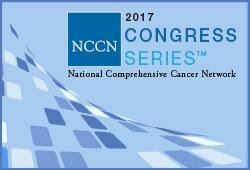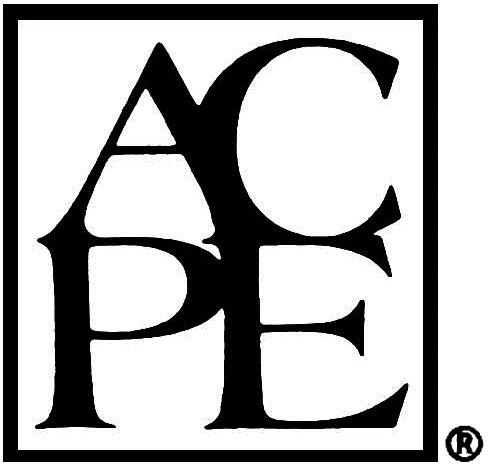
NCCN 2017 Congress Webinar Series™: Lung Cancer
Lung cancer is the leading cause of cancer death. While a cure for cancer remains elusive, great progress has been made. The emergence of new biomarkers, advances in screening, and the availability of new systemic treatment options – including novel targeted agents and new immunotherapeutic drugs – have changed the oncology landscape over the past five years. As a result of this evolving landscape, clinicians are faced with the challenge of remaining up-to-date on new recommendations, guidelines, and approaches to managing adverse events that may occur with new agents.
With the emergence of new therapeutic interventions and systemic therapies for non-small cell lung cancer (NSCLC) and small cell lung cancer (SCLC) and advances in lung cancer screening, clinicians continue to rely on the NCCN Clinical Practice Guidelines in Oncology (NCCN Guidelines®) for Non-Small Cell Lung Cancer, Small Cell Lung Cancer, and Lung Cancer Screening, as well as NCCN’s educational interventions to increase their knowledge and to bridge the gap between knowledge and clinical practice. With these resources, NCCN seeks to assist clinicians in communicating management options effectively to their patients, making shared treatment decisions, and providing optimal care.
This congress is designed to educate healthcare professionals on current and emerging scientific data so that they can make evidence-based decisions about screening and treatment for patients with lung cancer. The goal of this educational program is to ensure that members of a multidisciplinary team, including physicians, nurses, pharmacists, and other relevant healthcare professionals, have the knowledge and skills necessary to apply the standards of care to their practices and healthcare settings for patients with lung cancer and those being screened for lung cancer.
Target Audience
This educational program is designed to meet the educational needs of oncologists, pathologists, nurses, pharmacists, and other health care professionals who manage patients with lung cancer and those being screened for lung cancer.
Learning Objectives
Following this activity, participants should be able to:
Sequencing Therapy for Advanced Non-Small Cell Lung Cancer
- Discuss sequencing of systemic therapy for patients with metastatic NSCLC and ALK gene rearrangements.
- Describe sequencing of systemic therapy for patients with metastatic NSCLC and sensitizing EGFR mutations.
- Identify the subsequent therapy regimens for patients with wild-type NSCLC.
- Select the most appropriate subsequent therapy regimens for patients with advanced NSCLC who have progressed after first-line systemic therapy.
- Discuss sequencing of systemic therapy for patients with metastatic NSCLC and ROS1 gene rearrangements.
- Describe the different biomarkers for which effective targeted therapy is available for patients with metastatic NSCLC.
Immunotherapies in Lung Cancer
- Identify the new recommended immunotherapy regimens for patients with SCLC and NSCLC.
- Evaluate the risks and benefits of using immune-checkpoint inhibitor therapy.
- Educate health care providers about adverse events that may occur with immunotherapy and appropriate management.
- Describe the challenges with diagnosing pneumonitis.
- Summarize the role of biomarker testing to assist with selecting the most appropriate immunotherapeutic agents for patients with metastatic NSCLC.
Managing Toxicities of Newer Agents
- Describe the spectrum of immune-related adverse events that may occur with immune-checkpoint inhibitor therapy.
- Educate patients and their caregivers about symptoms suggestive of immune-related adverse events.
- Manage immune-related adverse events associated with immune-checkpoint inhibitor therapy.
- Monitor for and manage patients who have adverse events associated with ALK inhibitors.
What, When, and How of Biomarker Testing in Non-Small Cell Lung Cancer
- Identify the appropriate use of liquid biopsy and tissue biopsy in assessing for biomarkers in patients with metastatic NSCLC.
- Describe the recommended molecular testing for patients with NSCLC and sensitizing EGFR mutations and T790M.
- Summarize the currently known mechanisms for primary and secondary resistance to erlotinib, gefitinib, and afatinib.
New Strategies to Improve the Accuracy of Lung Cancer Screening
- Discuss the risk assessment process used to determine whether patients are candidates for lung cancer screening.
- Evaluate and follow-up the findings of different types of nodules that may be detected on low-dose computed tomography.
- Identify when to recommend further screening, biopsy, surgical excision of nodules based on recommendations in the NCCN Guidelines® for Lung Cancer Screening.
- Appropriately counsel patients about the risks and benefits of lung cancer screening.
Sequencing Therapy for Advanced Non-Small Cell Lung Cancer
Monday, August 28, 2017 • 1:00 – 2:00 PM EDT
Gregory J. Riely, MD, PhD, Memorial Sloan Kettering Cancer Center
Immunotherapies in Lung Cancer
Thursday, September 7, 2017 • 11:30 AM – 12:30 PM EDT
Julie Brahmer, MD, MSc, The Sidney Kimmel Comprehensive Cancer Center at Johns Hopkins
Managing Toxicities of Newer Agents
Wednesday, September 13, 2017 • 12:00 – 1:00 PM EDT
Marianne Davies, DNP, MSN, ACNP-BC, AOCNP, Yale Cancer Center/Smilow Cancer Hospital
What, When, and How of Biomarker Testing in Non-Small Cell Lung Cancer
Monday, October 9, 2017 • 4:00 – 4:45 PM EDT
Matthew A. Gubens, MD, MS, UCSF Helen Diller Family Comprehensive Cancer Center
New Strategies to Improve the Accuracy of Lung Cancer Screening
Tuesday, October 31, 2017 • 2:00 – 3:30 PM EDT
Ella A. Kazerooni, MD, MS, University of Michigan Comprehensive Cancer Center
Douglas E. Wood, MD, Fred Hutchinson Cancer Research Center/Seattle Cancer Care Alliance
ALL WEBINAR TIMES ARE POSTED AS EASTERN DAYLIGHT TIME (EDT) (UTC/GMT -4:00).
Access to participate in selected sessions is through the NCCN WebEx Site on the day of each scheduled program.
Physicians
National Comprehensive Cancer Network (NCCN) is accredited by the Accreditation Council for Continuing Medical Education (ACCME) to provide continuing medical education for physicians.
NCCN designates this live activity for a maximum of 5.25 AMA PRA Category 1 Credits™. Physicians should claim only the credit commensurate with the extent of their participation in the activity.
Physician Assistants
AAPA accepts certificates of participation for educational activities certified for AMA PRA Category 1 Credit™ from organizations accredited by ACCME or a recognized state medical society. PAs may receive a maximum of 5.25 hours of Category I credit for completing this live webinar series.
Nurses
National Comprehensive Cancer Network (NCCN) is accredited as a provider of continuing nursing education by the American Nurses Credentialing Center’s Commission on Accreditation.
NCCN designates this educational live webinar series for a maximum of 5.25 contact hours.
Pharmacists
| National Comprehensive Cancer Network (NCCN) is accredited by the Accreditation Council for Pharmacy Education as a provider of continuing pharmacy education. |
NCCN designates this knowledge-based continuing education live webinar series for 5.25 contact hours (0.525 CEUs) of continuing education credit.
Sequencing Therapy for Advanced Non-Small Cell Lung Cancer
Monday, August 28, 2017 • 1:00 – 2:00 PM EDT
1.0 contact hour (0.10 CEUs)
UAN: 0836-0000-17-081-L01-P
Immunotherapies in Lung Cancer
Thursday, September 7, 2017 • 11:30 AM – 12:30 PM EDT
1.0 contact hour (0.10 CEUs)
UAN: 0836-0000-17-082-L01-P
Managing Toxicities of Newer Agents
Wednesday, September 13, 2017 • 12:00 – 1:00 PM EDT
1.0 contact hour (0.10 CEUs)
UAN: 0836-0000-17-083-L01-P
What, When, and How of Biomarker Testing in Non-Small Cell Lung Cancer
Monday, October 9, 2017 • 4:00 – 4:45 PM EDT
0.75 contact hours (0.075 CEUs)
UAN: 0836-0000-17-084-L01-P
New Strategies to Improve the Accuracy of Lung Cancer Screening
Tuesday, October 31, 2017 • 2:00 – 3:30 PM EDT
1.50 contact hours (0.150 CEUs)
UAN: 0836-0000-17-085-L01-P
Please refer to the Schedule tab for dates and times. Check the webinars you would like to attend and click Enroll.
Required Hardware/software
To complete this activity, users will need:
- A device with an Internet connection and sound playback capability
- One of the two latest versions of Google Chrome, Mozilla Firefox, or Safari
- Internet Explorer is no longer supported
- Adobe Reader or other PDF reader software for certificate viewing/printing

 Facebook
Facebook X
X LinkedIn
LinkedIn Forward
Forward